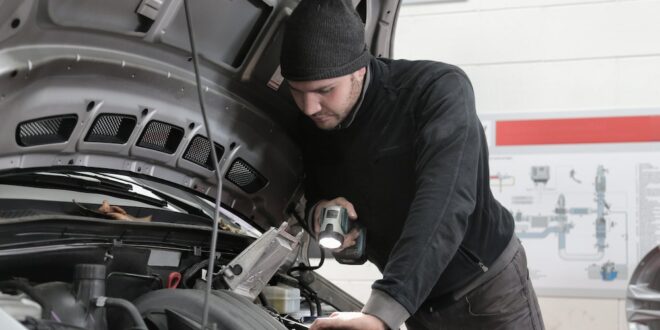Drivers have a lot of responsibilities. They need to stay on top of car payments and automotive insurance, make sure they budget for gas and pay for sometimes expensive repairs. While it should come as no surprise that preventative vehicle maintenance can sometimes fall by the wayside, it’s one of the best ways to avoid expensive repairs. Drivers who aren’t exactly sure what preventative maintenance entails should read on to find out about tasks they can’t afford to ignore.
Fluid Checks and Changes
Most people know they’re supposed to get oil changes every 3,000 miles, but few realize that there are so many other automotive fluids that must be checked and occasionally replaced. Be sure to check not just the oil, coolant, and brake fluid but also the transmission fluid for vehicles with automatic transmissions. If these fluids have never even been checked, there’s a good chance that’s why you need to repair your car. Try to stay more on top of them in the future.
Tire Pressure
Some cars have built-in tire pressure sensors, making it easy to keep track of the air levels in tires. Drivers who have this feature should not ignore the tire pressure light, and those that don’t should make a point of checking tire pressure regularly. It’s not enough to just look at the tire and confirm that it’s not visibly flat because there’s no way to accurately gauge tire pressure by appearance alone. Use a tire pressure gauge.
Tire Rotation and Balancing
Just making sure that the tires are properly inflated isn’t enough. Regular tire rotation is also very important, and it requires the help of a mechanic or tire shop. Because most vehicles are front-wheel drive, the wear on tires tends to be uneven. Rotating them every six months extends their longevity by ensuring that all of the tires wear down evenly, while tire balancing helps to accomplish the same goal by reducing the effects of uneven pressure and alignment or bearing issues.
Air Filter Cleaning and Changes
Air filters are one of the most overlooked parts, but they play a vital role. If they get clogged, it causes the car not to be able to get enough air, which reduces power and gas mileage and can cause the engine to stall. Get the air filters cleaned every other oil change and have them replaced at least once every 10,000 miles. It’s an affordable way to support good gas mileage and take care of the car’s engine.
Brake Pad Replacements
Brake pads need to be replaced as they wear down both to ensure the safety of a vehicle’s occupants and to avoid costly rotor repairs. Modern cars have brake indicator lights on their dashboards, but even older vehicles have built-in measures for letting drivers know they need new brakes. All brake pads feature metal tabs that become increasingly exposed as they wear down, and these tabs scrape against the braking mechanism when exposed, causing a loud, screeching sound that’s hard to miss. Don’t ignore it.
Proper Maintenance Supports Vehicle Longevity
Making sure a car is getting all the maintenance it needs is the best way to reduce the chances of unexpected breakdowns and extend its longevity. When in doubt about what a car needs to get back into optimal operating condition, the best option is to head to a mechanic.
 Being Human
Being Human




